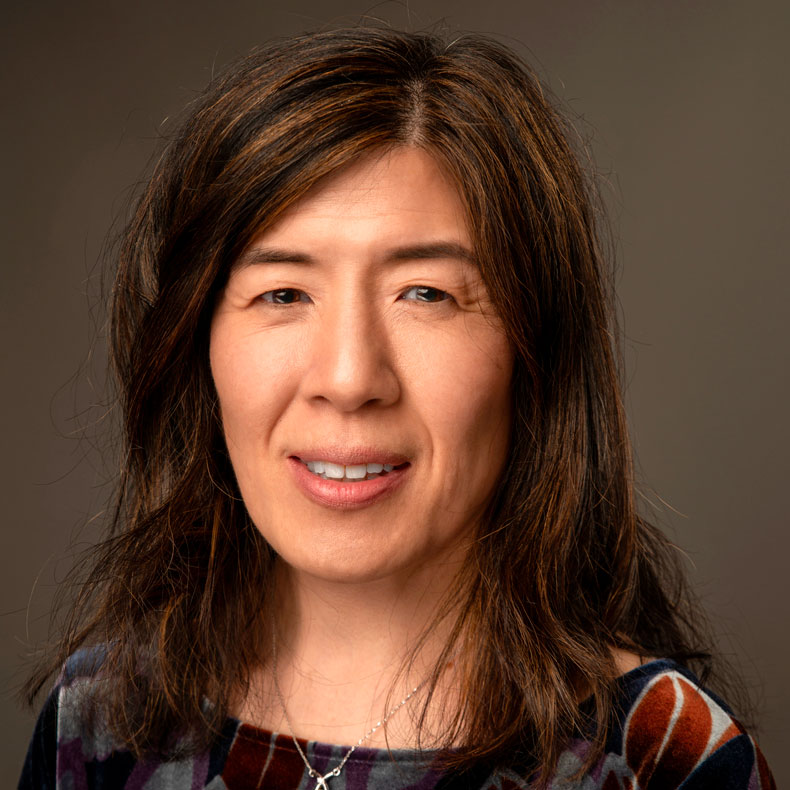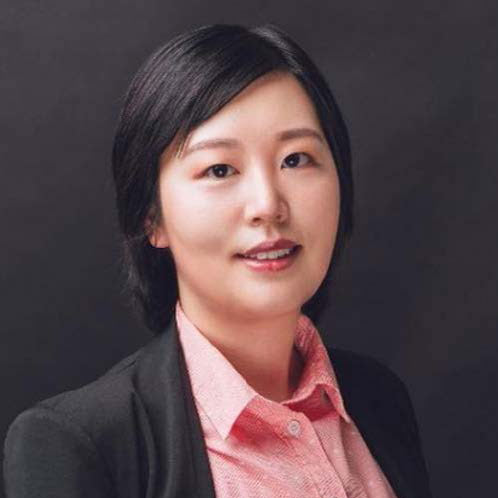Asian Mental Health Concentration
Asian Mental Health
Increase your cultural competency when working with Asian individuals, families, and groups.
Asians are the fastest growing racial minority group in the United States. Yet, Asian immigrants face significant barriers in accessing and utilizing mental health services. Cultural competency, cultural responsiveness and cultural humility have become imperatives in clinical and service practices in working with Asian individuals, families and groups.
As our society becomes increasingly diverse, there is a growing need to recruit and train graduate psychology students who possess the knowledge and required skills to meet the mental health needs of culturally diverse individuals, families and communities. This concentration is designed to promote students’ awareness and knowledge of the unique mental health inequalities in clinical practice, research and policy, and their impact on the psychosocial well-being of Asian communities in the U.S.
Offered in the following academic programs
This concentration is organized by the Center of Excellence for Multicultural and Global Mental Health
Learn MoreWatch our video about the Asian Mental Health Concentration.
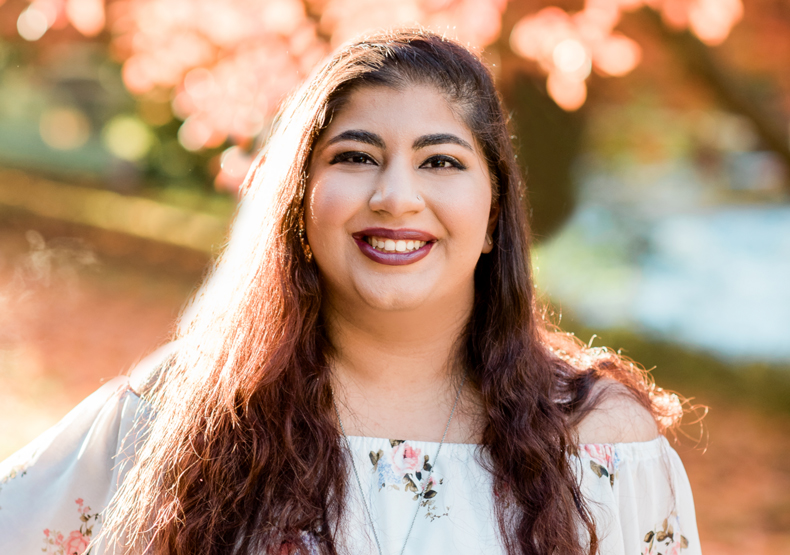
“For me, joining the AMH concentration means that I will have training, the necessary skills, and the competency to serve a population amongst whom mental health is stigmatized. It gives me a chance to contribute to help de-stigmatize and open access up to the community.”
Aashi Chhabra
Clinical Psychology PsyD, Asian Mental Health
“I chose to join this concentration because the struggles and experiences of Asians are not really discussed compared to other groups of color and I felt like this was going to be a field that I could make the most impact as a bilingual clinician. I want to gain knowledge in how to work with the Asian population, administer culturally appropriate assessments, and advocate for this population.”
Tin Huang
Asian Mental Health
How to enroll and curriculum overview.
This concentration is for students who are interested in learning and understanding the historical and socio-cultural context in which Asian subgroups have formed their identities. It is for students who want to develop cultural competence, humility and responsiveness in working with Asian individuals, families and communities. Therefore, central to this concentration, will be students’ own experiences, beliefs, and attitudes relating to Asians. This concentration is for students who are interested in making Asian mental health a part of their professional identity. Elements of this perspective will be examined and challenged as they relate to facilitating or impeding work with Asians in clinical and research settings.
The Asian Mental Health Concentration is open to all William James College students across all departments who have an interest in providing culturally-sensitive mental health services to individuals, families and communities of Asian descent. Courses will be offered to students enrolled in the Asian Mental Health Concentration and as electives.
Two levels of involvement are offered: Major Area of Study and Area of Emphasis.
- To enroll, students should download and complete the Concentration Declaration Form from the Registrar’s Office webpage before the deadline (usually November 1, though the date is subject to change).
- In addition, students must fill out and submit a Concentration Application Form.
- The Concentration Declaration Form must first be reviewed and signed by the student’s advisor.
- Students typically apply in the fall semester of their first year and begin courses during the second semester of their first year.
Masters level students in Clinical Mental Health Counseling and School Psychology MA/CAGS who are enrolled in AMH, will graduate with extra credits.
Coursework
Doctoral Level: Major Area of Study (9 credits)
- CLI AM600 - Introduction to Asian Cultures: The Asian Experience in the United States (credits: 2)
- CLI AM602 - Clinical Work with Asian/Asian Americans (credits: 2)
- CLI AC600 - Mental Health Disparities: Multicultural and Global Perspectives (credits: 2)
- CLI AC800 - Global Mental Health: Program Development and Evaluation (credits: 2)
- CLI AM603 - Vietnam Service Learning and Cultural Seminar (credits: 1)
- CLI AM604 - Vietnam Service Learning and Cultural Immersion (credits: 0)
- CLI AM600 - Introduction to Asian Cultures: The Asian Experience in the United States (credits: 2)
- CLI AM602 - Clinical Work with Asian/Asian Americans (credits: 2)
- CLI AM603 - Vietnam Service Learning and Cultural Seminar (credits: 1)
- CLI AM604 - Vietnam Service Learning and Cultural Immersion (credits: 0)
Additional Notes
- A minimum of 25% of Field Placement direct services with Asian/Asian Pacific American populations by date of graduation.
- Students need to complete a Doctoral Project with a focus on population Asian / Asian Pacific Americans.
- All concentration credits can be used as part of electives.
- If you belong to two concentrations, speak with the Director of AMHP for course planning.
- All courses are offered on Wednesday evenings (6:40-8:30 pm).
- Summer immersion group travels during Summer II session.
Coursework
Master's Level: Major Area of Study (5 credits)
- CLI AM600 - Introduction to Asian Cultures: The Asian Experience in the United States (credits: 2)
- CLI AC600 - Mental Health Disparities: Multicultural and Global Perspectives (credits: 2) OR CLI AM602 - Clinical Work with Asian/Asian Americans (credits: 2)
- CLI AM603 - Vietnam Service Learning and Cultural Seminar (credits: 1)
- CLI AM604 - Vietnam Service Learning and Cultural Immersion (credits: 0)
Students will complete their practicum placements at clinical training sites where at least 25% of the training experience will be with clients of Asian heritage. The concentration director can provide a list of approved training sites.
Doctoral-level students who are completing a Major Area of Study in the Asian Mental Health concentration will be required to complete a doctoral project on a topic germane to Asian Mental Health. It is recommended that at least one of their doctoral project committee members be a Multicultural and Global Mental Health Center faculty or a professional with substantial experience or expertise in the field.
Doctoral-level students who are completing an Area of Emphasis in the Asian Mental Health concentration are strongly encouraged, but are not required, to choose a doctoral project with a focus on the population of interest.
To support student’s professional growth and development, the Asian Mental Health concentration students must attend at least one Continuing Education (CE) event annually that is sponsored or approved by the Center for Multicultural & Global Mental Health. Students are also encouraged to attend a variety of activities (e.g., conferences, lectures, film series, social and cultural events) throughout the year that are organized by the Center for Multicultural & Global Mental Health.
Q: What concentrations are offered through the Center for Multicultural & Global Mental Health (CMGMH)?
A: There are four CMGMH concentrations: African and Caribbean Mental Health, Asian Mental Health, Global Mental Health, and the Latino Mental Health Program.
Q: Can I enroll in more than one concentration?
A: Yes! Many of the students in CMGMH concentrations are enrolled in more than one concentration. In addition, concentrations can be completed at one of two levels: “Major Area of Study” or “Emphasis.”
Q: What’s the difference between a “Major Area of Study” and an “Emphasis”?
A: Students enrolled in a PsyD Program can complete a CMGMH concentration at the “Major Area of Study” level. This requires between 8-9 course credits, depending on the concentration. Students enrolled in a Master’s or PsyD Program can complete a CMGMH concentration at the “Emphasis” level. This requires between 4-5 course credits, depending on the concentration.
Q: Do I have to participate in an international immersion trip? I don't think I can spend that much time away from home.
A: No, you do not have to participate in an international immersion trip. There are opportunities for local immersions that won't require you leaving home and will still fulfill the concentration requirements.
Q: I am in the clinical program, if I declare a CMGMH concentration, will I have to do my Doctoral Project on that topic?
A: Students who are completing a concentration as a Major Area of Study are required to do a doctoral project on a topic germane to their concentration. It is recommended that at least one of their doctoral project committee members be a CMGMH faculty or a professional with substantial experience or expertise in the field. Students who are completing an Emphasis are encouraged (but not required) to choose a doctoral project with a focus on the population of interest.
Q: How will a CMGMH concentration affect my field placement choices?
Students in a CMGMH concentration will complete their practicum or internship placements at clinical training sites that have been approved by the concentration directors. The list of approved training sites is available. Also, at least 25% of the training experience (by time of graduation) will be with culturally diverse clients or organizations that serve the population of interest.
Q: Are there other requirements that I should know about?
A: To support students’ professional growth and development, CMGMH requires that all concentration students attend at least one Continuing Education (CE) event annually that is sponsored or approved by the Center for Multicultural & Global Mental Health.
Q: I saw the deadline to apply for a concentration. It is past the deadline but I still would like to declare a concentration. What do I do?
A: You may be able to declare a concentration up until registration for spring courses. There will be an additional opportunity to declare CMGMH concentrations in the spring. Contact the director of the concentration that you are interested in applying for to find out if you are still able to declare.
Q: What is the enrollment process?
A: CMGMH concentrations are open to all WJC students who have a strong interest in serving historically marginalized individuals, families and communities. To enroll, students should download and complete both the Concentration Application Form and the Concentration Declaration Form from the Registrar’s Office webpage, and submit it to the concentration director. The Concentration Declaration Form must first be reviewed by the student’s advisor. Students typically apply in the fall semester of their first year and begin courses during the second semester of their first year.
Q: I am interested in learning more about the international immersion programs. Who do I contact?
- Students who are interested in the Ecuador immersion program should contact Dr. Mari Carmen Bennasar (mari_bennasar@williamjames.edu).
- Students who are interested in the Guyana immersion program should contact Dr. Natalie Cort (natalie_cort@williamjames.edu).
- Students who are interested in the Haiti immersion program should contact Dr. Gemima St. Louis (gemima_stlouis@williamjames.edu) and Dr. Jill Bloom (jill_bloom@williamjames.edu).
- Students who are interested in the Kenya immersion program should contact Dr. Claire Fialkov (claire_fialkov@williamjames.edu) and Dr. David Haddad (david_haddad@williamjames.edu).
- Students who are interested in the Trinidad & Tobago Service Learning program should contact Dr. Jill Bloom (jill_bloom@williamjames.edu)
Q: Where can I find additional information about CMGMH concentrations?
If you have any questions about the concentration requirements, please email cmgmh@williamjames.edu or contact the concentration directors:
African and Caribbean Mental Health: Dr. Shani Turner (shani_turner@williamjames.edu)
Asian Mental Health: Dr. Catherine Vuky (Catherine_vuky@williamjames.edu)
Global Mental Health: Dr. Jill Bloom (jill_bloom@williamjames.edu)
Latino Mental Health: Dr. Mari Carmen Bennasar (mari_bennasar@williamjames.edu)
Concentration Faculty
Concentration Director
Catherine Vuky, PhD
View Profile
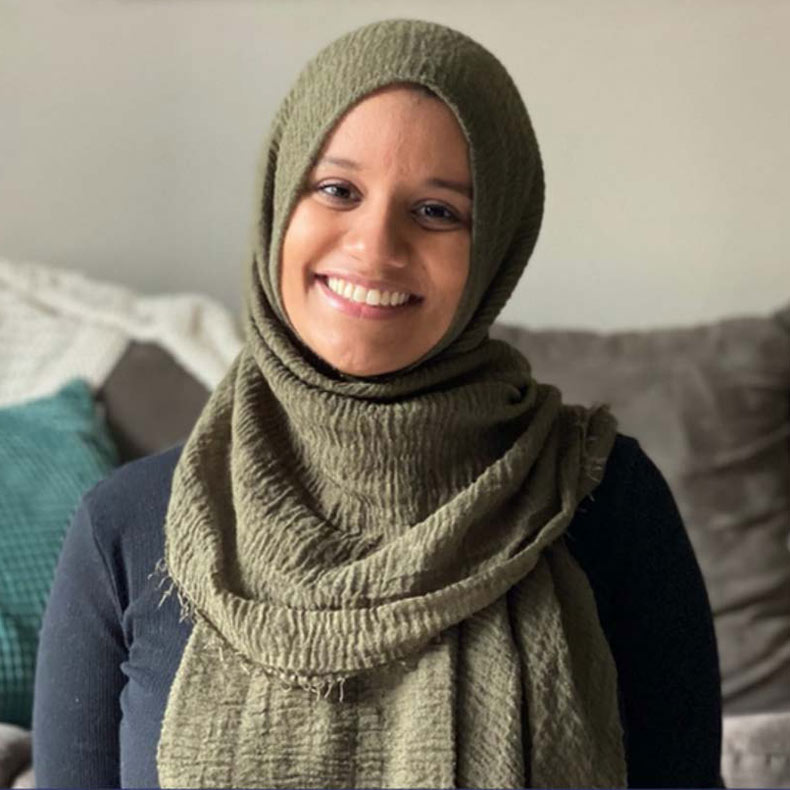
Hanan Hashem, PhD
View Profile
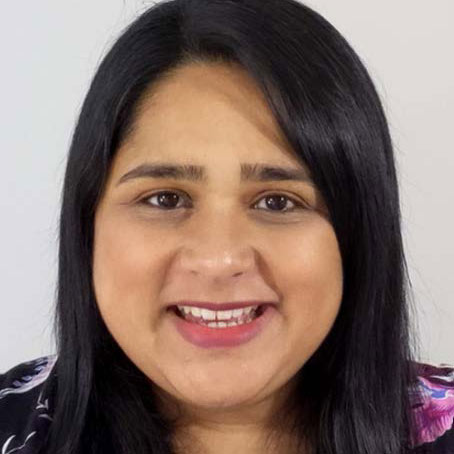
Sejal Prajapati, PsyD
View Profile

Shymala Venkataraman, PhD
View Profile
Around campus, in the community, in the news—William James College community members are leading the conversation.
Asian Mental Health Program Creates Parent Guide to Help Families
Asian Mental Health Program creates parent guide to help families address xenophobia, racism fueled by COVID-19.
Read more hereBeyond Black and White: Civil Rights After COVID-19
Hosted by the Asian Mental Health program, this conversation with Queens College President, Frank H. Wu, JD, explored the effects of the COVID-19 pandemic on civil rights. President Wu is the author of Yellow: Race in America Beyond Black and White and the first Asian American to serve on the faculty at Howard University.
Watch hereBreaking Barriers: Conversations with Asian Parents About Mental Health
Asians are one of the fastest growing populations in the United States, yet, Asian immigrants face significant barriers in accessing and utilizing mental health services. Watch a series of powerful videos from our students and faculty.
Watch here
